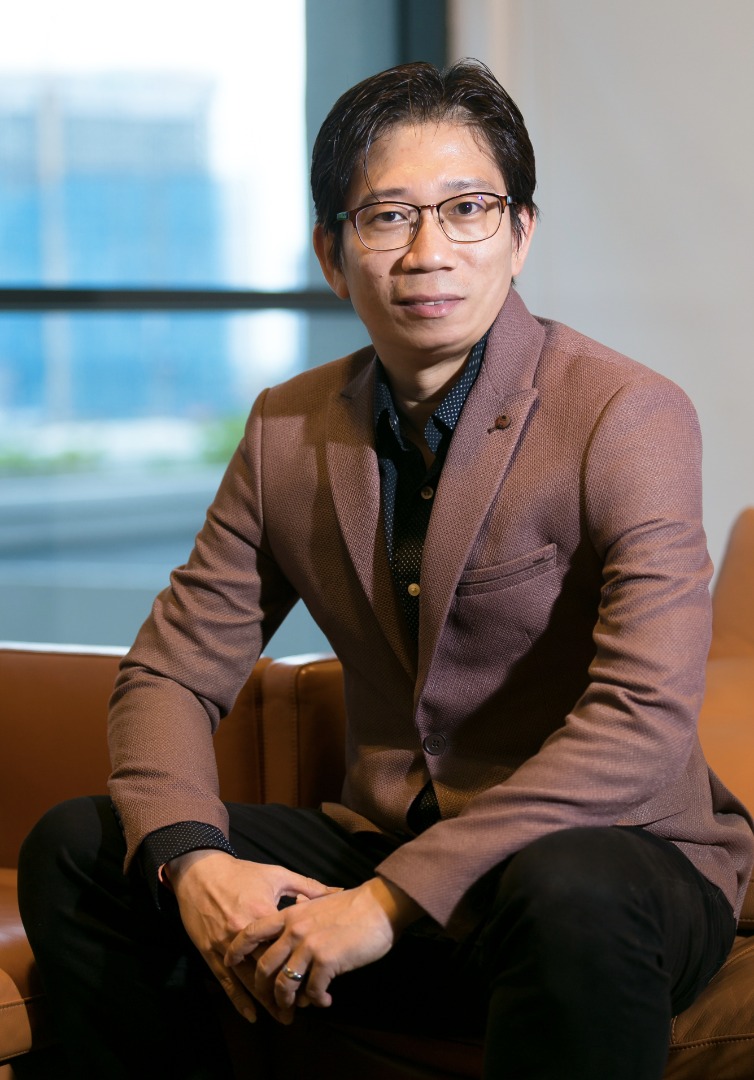Did you read an article about the richest Malaysians in Malaysia recently? There’s one in TheStar about the top 40. Who’s new, who’s out and basically what do they do and how much is their actual net worth. This is what they actually have, after deducting all their debts, if any. 🙂 In brief, the top five are as follows: Robert Kuok of PPB Group Bhd/Kerry Group with a net worth of RM37 billion, Tan Sri Lim Kok Thay of Genting Group with a net worth of RM22 billion, Tan Sri Teh Hong Piow of Public Bank Bhd with net worth of RM20 billion, T. Ananda Krishna of Usaha Tegas Group with a net worth of RM20 billion and Tan Sri Lee Shin Cheng of IOI Group with a net worth of RM19 billion. All the top 40 are billionaires. Want to know all the remaining 35? Read the article in The Star loh.
For those who have identified all the top 40 and believe it’s possible to catch up with them, I wish you all the best. Think ‘online start-ups and you may just make it within a few years’ time. Look at GRAB for inspiration. As for the rest of us who intend to continue working, perhaps it’s time we come back to reality. For the majority of working professionals, I think we are within the groupings of B40, M40 and T20. What are these three groupings? Malaysiakini has a concise article explaining the differences. Where income is concerned, the article which is based on 2014 numbers showed the following: T20 which is also the top 20 percentile has a median household income of RM11,610 followed by M40’s median household income at RM5,465 and B40 with a median household income of RM2,629. Within the T20 earners, 20.5 percent of them identify themselves as government servants, 8.1 percent identified themselves as employees, 57.8 percent as private sector workers and 13.5 percent as self-employed. I am guessing that all the super-wealthy people are not free to answer any questionnaires sent to them and thus may not be included into the statistics.
For the middle income group, M40. These are what they identify themselves as. 3 percent identified themselves as employers, 17.3 percent as government servants, 59.2 percent as private sector employees and 20.5 percent as self-employed. (From this number, we can also note why many in the private sector are asking for more affordable homes. They are a huge group within M40) Finally the B40 group has the following: 0.8 percent identified themselves as employers, 8.1 percent as government servants, 56.9 percent as private sector employees and 34.1 percent as self-employed. (From this number, we can see that a huge number of private employees may be stuck in low-paying jobs. These would be those jobs for which the employees themselves are not able to have much negotiation powers due to the nature of the work which can be easily replaced)
One way to also look at all these numbers would be the fact that salaries alone is not enough. We need investments. One job may also be insufficient. It’s time that we think of another income stream. Nope, it’s not only about becoming a UBER / GRAB driver. How about starting an online shop? There are so many online retail sites that we can be a part of. It is definitely possible to start baking cakes from our homes. I just ordered a 2kg cake for my daughter and I picked it up from a bungalow unit. I think the baker is by far richer than me! During conversations, I learnt that my friends have also ordered from the same baker. WOW. One more good choice would be to start writing about something we are passionate about. Look at paultan.org for inspiration on what happens when your site becomes extremely famous. Let’s keep doing more because we are the best people to help ourselves. Cheers.
written on 4 Feb 2017
Next suggested article: Nearly all Malaysians could not survive 6 months without income
















0 Responses
For one to be rich, he/she must be in business. Working persons will have difficulties becoming billionaires, marginal millionaires maybe. Look at the Top 40 richest men. They are all in business first. It includes politicians who are businessmen first.
The top (T20 )of mean or average income of RM 14,000+ with about 20% in Civil/Govt Service and 80% in private sectors proves that no matter how smart one is, one can never be rich unless one goes into business. I’m not advocating this. Read Robert Kiyosaki’s book on Rich Dad Poor Dad.
The Chinese has been predominately in business, will likely to outnumber in the top 40 richest. Only 6 are non- Chinese, of which only two are Indians. Sure there are some, who want to lie very low for whatever reason, but these low-lying individual numbers will remain very small as people in that wealth category will have great difficulty, lying low with such enormous wealth esp in billionaire category. Some millionaires may, esp those with illegal wealth.
Yea, agree. Successful businessmen would always be the wealthiest few. My ex-CEO used to tell us this. Think like the Americans. Work like the Japanese but SPEND like the Chinese. I think this will always be applicable for a very long time still. Perhaps for now, we can also add be as innovative as the Koreans too. Everything K is the rage today. ‘Illegal wealth’ is a very interesting term. Haha. I think I will continue focusing on my little career and enjoy more time with my kids as they are growing up fast. Love your frank views always. Cheers Fred.
Haha…work like the Japanese? The last few years, many Japs cars need to be withdrawn, Fukushima incidents and many others are surfacing to expose the work ethics of the Japanese. Of course, it is not as prevalent as the Chinese esp. in regard to food. The days of the ethics from Samurai honour are eroding. It has suffered much from its inward, egoistics, and proud traditions of ‘Japan belongs to Japanese always’. These proud cultures cause not learning another language esp English, Economic stagnation, and aging population.
It’s population of elderlies(65 and above) is 27% i.e. 1in 4 persons. It is basically monolingual, few Janpanese speak a second language esp English. This prevents it from globalising and allowing many of its people from moving out of its comfort zone to work outside Japan.
It’s immigration policy also prevented it from bringing overseas talents and skills to create more domestic employments etc and increase it’s population pool. USA is able to remain pole economically is due to its friendly immigration policies to bring in the best and brightest into its land. It continues to innovate and surprises with its talent pool.
Today, one in five arrested Japanese criminals is an elderly person. These poor elderly Japanese prefers the prison to the cold-hard homeless environment in the streets. They sleep on corridors, cold and hard. Unable to afford medical treatments and poor nutrition food, prisons seem like a better place, an upgrade. Free meals, medical check-ups and treatment and a roof and walls to keep warm, that they repeatedly ask for continued imprisonment in their discharged counseling.
While the quote from my ex-CEO was at least 15 years old but as at today, I am still amazed with the work ethics of Japanese. I think it’s culturally ingrained. As for the U.S, I think we should also note that their currency is used by the world today. (The only currency used for oil….) Thus, it does not reflect only the country’s fundamentals. Never ending trade deficits, increasing and huge debts are just two of the few things which should have affected them if they are just another normal country like the majority and not a superpower. Yeah, it’s quite sad when we look at Japan in terms of demographics. The elderly are having to fend for themselves because there are not enough young to support them. However, bringing in overseas talent is not something easy. It may be faster and more effective if they were to just recognise women talents that they have first. Promote these talents and give them more authority and not just depend on the ageing men. In terms of elderly without a proper home, when I was in the UK, every winter would bring with it news about homeless people dying on the streets or under the bridge. I think this is not confined to just Japan. Thanks for sharing and please continue to teach me more. Thanks Fred.